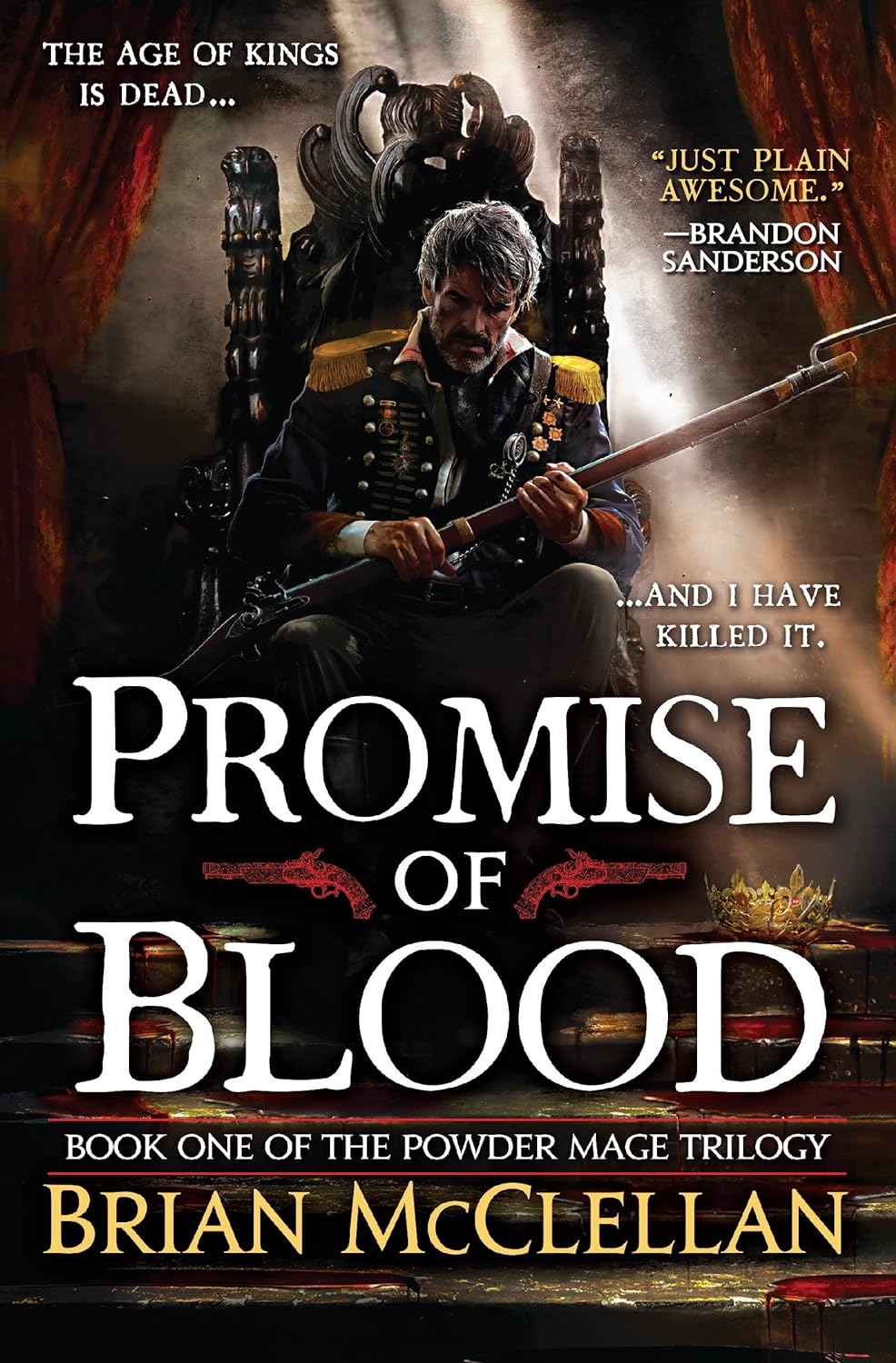Well-written but awfully predictable
When epic fantasy is mentioned, you’d be forgiven if swords and magical staves are the first things you think of. The genre, however, is so much more than that stereotypical image. Brian McClennan’s Promise of Blood, the first book in the Powder Mage trilogy, is illustrative of that.
The setting is highly evocative and where the book truly stands out, for better or worse. Reminiscent of our own Age of Enlightenment and Revolutionary France, Adro is a kingdom that we first see on the cusp of a major change. The king has been overthrown by a conspiracy that aims to get rid of a corrupt nobility. If you know anything about the fall of ol’ King Louis, you can guess what happened here: people were starving while the rich turned a blind eye to their suffering. One Field Marshal Tamas decides to take what he feels is corrective action.
It is in those early chapters that Promise of Blood really shines. You can taste the grit and grime of Adro, here the roar of crowds, and the tension builds quickly. Unlike France, the king of Adro was protected by a super powerful cabal of sorcerers. Most were killed in the coup but one remains, wreaking havoc as Tamas’ soldiers try to secure the city. A last bastion of royalist opposition explodes and leads to fights in the heart of the capital. All hell is about to break loose.
By about the midpoint, however, the book’s tension begins to fizzle out. In those early chapters, Tamas was depicted as a morally grey character, with an investigator named Adamat, Tamas’ son Taniel, and a laundress named Nila driving the story forward. Tamas, however, soon becomes the driving force of everything. Which, in and of itself, isn’t bad. What doesn’t work are the great lengths the author goes to make him likeable. Worse is how he and his son never seem to be in any real danger.
Both are frequently whisked out of dangerous situations via plot contrivances and deus ex machina. The grit and realism that made the book so compelling to read disappears as fast as the sense of real danger in the story. Just like the magic used by Taniel it was there and gone, taking my interest in finishing the novel with it.
Battling through the final third, Promise of Blood’s tonal and thematic dissonance brought me out of the book consistently. It’s clear the series has its crowd and that McClenan is a heck of a writer. It just isn’t for me. Thankfully, the author’s success means that everything the book does do well hasn’t gone to waste. But like their in-universe foes, I’ll be steering clear of this novel’s powder mages until further notice.
Ismael David Mujahid, Executive Editor


